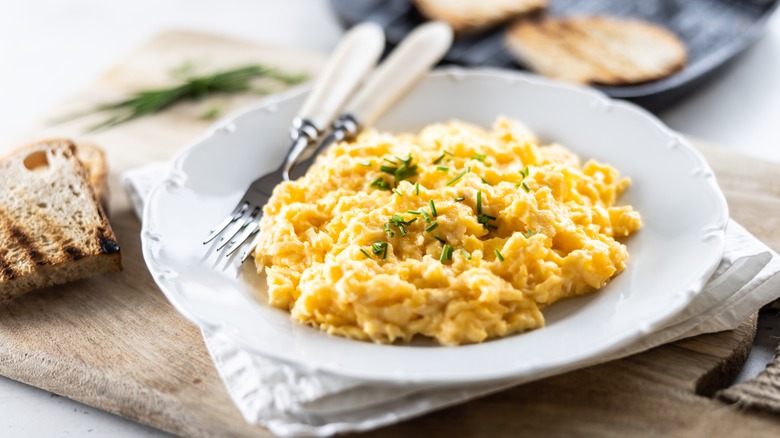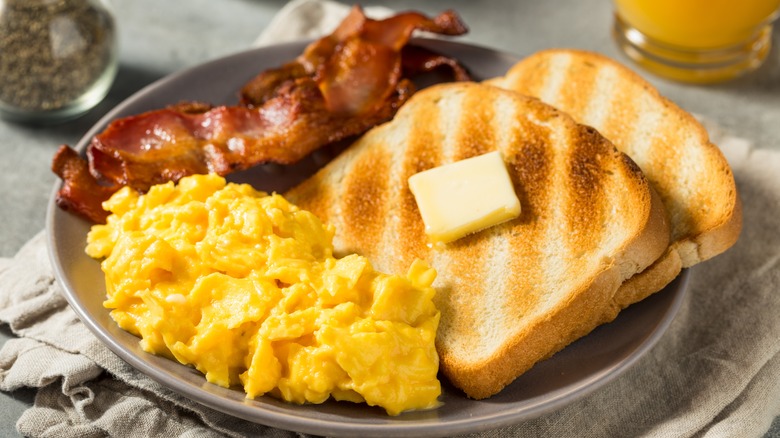Don't Let Scrambled Eggs Go Cold Too Fast By Preheating The Plate First
A scrumptious serving of scrambled eggs makes an awesome protein-packed breakfast. But have you ever found that your perfectly soft-set eggs have gone stone cold in the short space of time it's taken to brew your coffee? The simple solution is to preheat your plate first with a quick spin in the microwave so your eggs stay warm for a longer period.
When scrambled eggs cool down, their texture turns from creamy and soft to rubbery, tough, and dry. This occurs because of a scientific process called heat transfer. In simple terms, the heat energy from the hotter area (the scrambled eggs) moves to the cooler area (the cold plate), altering the consistency of your huevos. But this phenomenon occurs with every food, so why do scrambled eggs in particular get cold so much faster than hash browns or pancakes? Well, a batch of scrambled eggs is spread thinner and tends to take up a larger surface area on a plate than other types of breakfast food, like cooked bacon or sausage, which increases their rate of heat transfer.
Heating your plate before dishing up your eggs impedes the heat transfer process, helping your scramble to stay warm for longer. This is because the existing heat energy in your food and your crockery doesn't have a cooler region to move into as quickly.
Preheat your plate in the microwave
Placing your plate in the microwave to preheat, while you make your scrambled eggs, will guarantee that your huevos stay appetizingly warm and retain their soft consistency for longer. However, be mindful that your eggs will continue to cook in their residual heat as they sit on your hot plate. For this reason, it's wise to slightly undercook your eggs to your liking before plating them up to account for carryover cooking. They'll reach the perfect texture as they finish cooking in the residual heat they've absorbed from the pan and the rising heat from the dish you've set them on.
Restaurants keep their plates warm by using heat lamps but you can achieve the same result by placing your oven-safe plates in a hot oven if you don't have a microwave. The benefit of this technique is that it allows you to preheat several dishes at once by stacking them up on a single shelf, which is particularly useful if you're cooking for a crowd. Just be sure to put on some oven gloves before handling them. If you're using plastic, melamine, or bamboo plates that can't go into the oven or microwave, you can soak them in hot water to preheat them. Simply give them a quick dry with some kitchen towel before piling your fluffy scrambled eggs on top.

